Swing-state college students largely support Harris but acknowledge ‘razor-thin’ margin with Trump
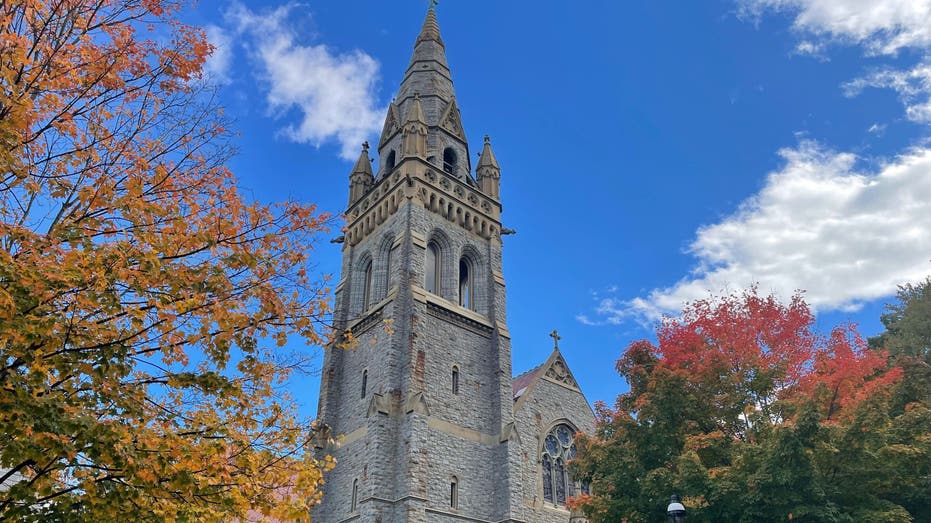
Students at one major Pennsylvania university in a “swing” area of the commonwealth were bullish on Vice President Kamala Harris’ chances in November but acknowledged the race remains tight. Fox News Digital visited Lehigh University, a prominent private college in Bethlehem, with such famous alumni as Chrysler Chairman Lee Iacocca, businessman and NASCAR team owner Roger Penske and top Trump confidante Alina Habba. The Philadelphia Eagles once held training camp at Lehigh’s Murray Goodman athletic campus on the other side of South Mountain. Along Packer Avenue in the middle of the main campus, Jack Ciavolella of the Lehigh University College Democrats was staffing a Democrats table Tuesday with other students and a volunteer from the Harris-Walz campaign. KEY PA REGION SEES ‘WAITLIST’ FOR TRUMP SIGNS AS LAWMAKER SAYS VOTERS ARE READY TO REVERSE DEM POLICIES A colorful totem pole of campaign signs stood waving in the wind next to the table for Harris, Sen. Robert P. Casey Jr., D-Pa.; Eugene DePasquale, a candidate for attorney general; and State Rep. Malcolm Kenyatta, D-North Philadelphia, a candidate for auditor general. “Since Northampton County is a swing county in a swing state — and probably one of the most important states in the Union — we kind of got to do our part,” Ciavolella said. “So that’s what I’m here for.” He added that as Election Day draws nearer, the campaigns are increasingly becoming a topic on campus, whether from Trump-supporting students, independents or those who agree with Ciavolella’s group. Fox News Digital reached out to the College Republicans via an email listed on the campus website but did not receive a response. “A lot more people are starting to get interested about it, about how the election’s coming and its razor-thin margins,” Ciavolella said. “So, people start to get a lot more interested in things like this.” Students are more engaged in politics this term than they have been in recent years, he said. INSIDE DEMOCRATS’ GROUND GAME IN PENNSYLVANIA’S ‘SWING’ LEHIGH VALLEY AREA As Fox News Digital conversed with other students walking down the mountainside campus from Sayre Park, none who stopped identified as Trump supporters. Ciavolella said his group has been more visible as the deadline for voter registration approaches. In the nearby vestibule of a campus coffee shop, a volunteer for a nonpartisan voter registration group was indeed trying to do just that. Lehigh is not unlike other schools in Pennsylvania, like Penn State, where students often register to vote on campus rather than in their out-of-state hometowns. That dynamic has made Centre County, where State College is located, into a swing county in national elections. Meanwhile, Eric Cepeda from New York said he is registered to vote on campus at Lehigh and said equality and community issues are most important to him this cycle. Tuition costs are also top of mind for him these days, he said, adding Lehigh has been helpful to students who need assistance and that Harris is the better candidate to address college affordability. HAMILTON COLLEGE STUDENT ADMITS TO POSTING ‘ANTISEMITIC REMARKS’ ON CAMPUS, NEW YORK STATE POLICE SAY Ethan, a student from New Jersey, said abortion and student loans are major issues for him this election. “Just, morally, how people are going to handle being in charge of the country and in charge of people,” he said. “I’ve seen people from both sides.” Political advertising has also been very noticeable in the area as of late, he added, crediting Pennsylvania’s “swing state” position for that increase. “Personally, I like to do my own research and not get, you know, swayed by the opinions of others,” he added. POPULAR PA DEMOCRATIC MAYOR WARNS TRUMP IS ‘OUT-MESSAGING’ HARRIS: I GET MORE FROM STEPHEN COLBERT Looking down toward the rest of Bethlehem, the roof of the historic “Hotel B” stuck out next to the busy Hill-to-Hill Bridge, as the rusted, long-silenced blast furnaces from Bethlehem Steel lined the near bank of the Lehigh River below. Noticeably absent from the city’s skyline, however, was Martin Tower, the blue and silver cruciform-shaped skyscraper north of Center City that once housed Bethlehem Steel’s headquarters. The site, which also hosted a Durkee spice factory, is being redeveloped, a theme throughout much of the Lehigh Valley. Down at the end of campus closest to the steel stacks, Mina Handelsman of California and Sophia Ross of Washington, D.C., were waiting for a campus shuttle that runs to Lehigh’s nearby Mountaintop and Goodman campuses. Both political science majors said abortion rights are a big issue for them, adding there are several important subjects that come to mind. CLICK HERE TO GET THE FOX NEWS APP “I also think plans for both the national debt and student college debt [are important],” Handelsman said. “Student loan programs: I agree,” added Ross. “What I think is really important and then also some economic issues. And I think some of the immigration policy is pretty interesting.” The students said they are both enrolled in classes that deal with elections and politics. “[W]e don’t hear a lot of discord or disagreement [on campus],” Ross said, adding it is important to get registered to vote either way. Handelsman said she predicts Harris will win Pennsylvania but have a tougher time in other swing states. “In Pennsylvania, young people are really being mobilized to get out the vote. And I think that as the younger generation, a lot of us, our issues are being more represented by Kamala Harris.” “I’m guessing it will be Kamala Harris, but I really don’t know,” Ross added. The Lehigh Valley is also home to several other schools, including DeSales University in Center Valley, Muhlenberg College in Allentown, Lafayette College in Easton and Moravian University in Bethlehem, where students’ votes weigh heavily in the swing area.
‘Not all that is hidden…’: Son Zeeshan shares cryptic post after Baba Siddique’s murder

NCP-Ajit Pawar leader Baba Siddique was murdered in Nirmal Nagar, Mumbai on October 12. He was rushed to Lilavati Hospital where he succumbed to the wounds.
‘Tumhare maa baap ne..’: ‘Flying Beast’ Gaurav Taneja reunites with Ritu Rathee, drops big hint amid divorce rumours

This comes after Gaurav Taneja and Ritu Rathee had been the topic of discussion all over social media, including Twitter and Reddit.
‘We faced a…’: Ratan Tata on his parents’ divorce, grandmother’s support and breakup
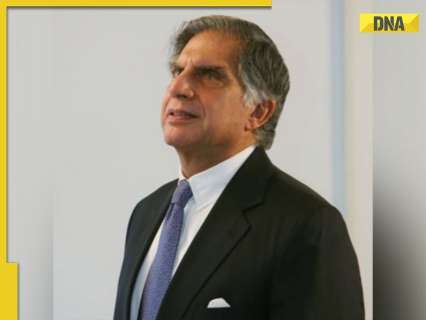
Tata joined the family firm after acquiring a B.S. in architecture from Cornell University, Ithaca, New York, in 1962.
‘Central government would have hanged me…’: AAP’s Satyendra Jain after getting bail in money laundering case
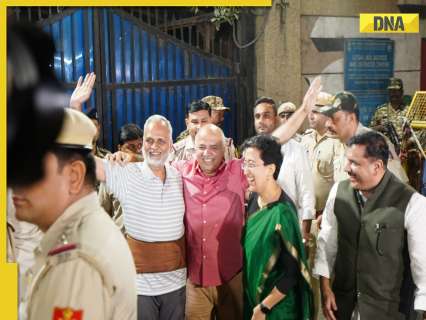
The Rouse Avenue Court on Friday granted bail to AAP leader Jain in a money laundering case.
Delhi-NCR’s air quality turns ‘very poor’, situation likely to worsen till…
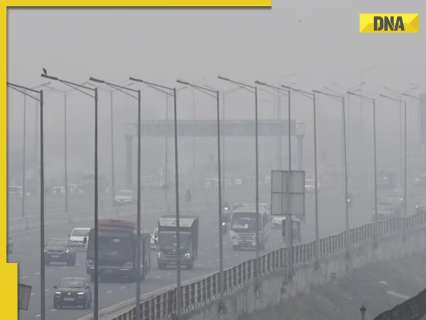
The Air Quality Index (AQI) in Delhi’s Anand Vihar has been recorded at 334, which is classified as ‘very poor’.
India adds Canada border police officer to terrorist list amid diplomatic row over Hardeep Nijjar killing

This comes after Canadian Prime Minister Justin Trudeau and the Royal Canadian Mounted Police (RCMP) alleged that Indian diplomats were sharing information about Sikh separatists with organised crime groups in India
Vistara’s Delhi-London flight diverted to Frankfurt after bomb threat

In a statement early Saturday morning, an airline spokesperson said the flight landed safely at the Frankfurt airport and mandatory checks are being conducted.
What is gerrymandering in US elections? What to know in 500 words
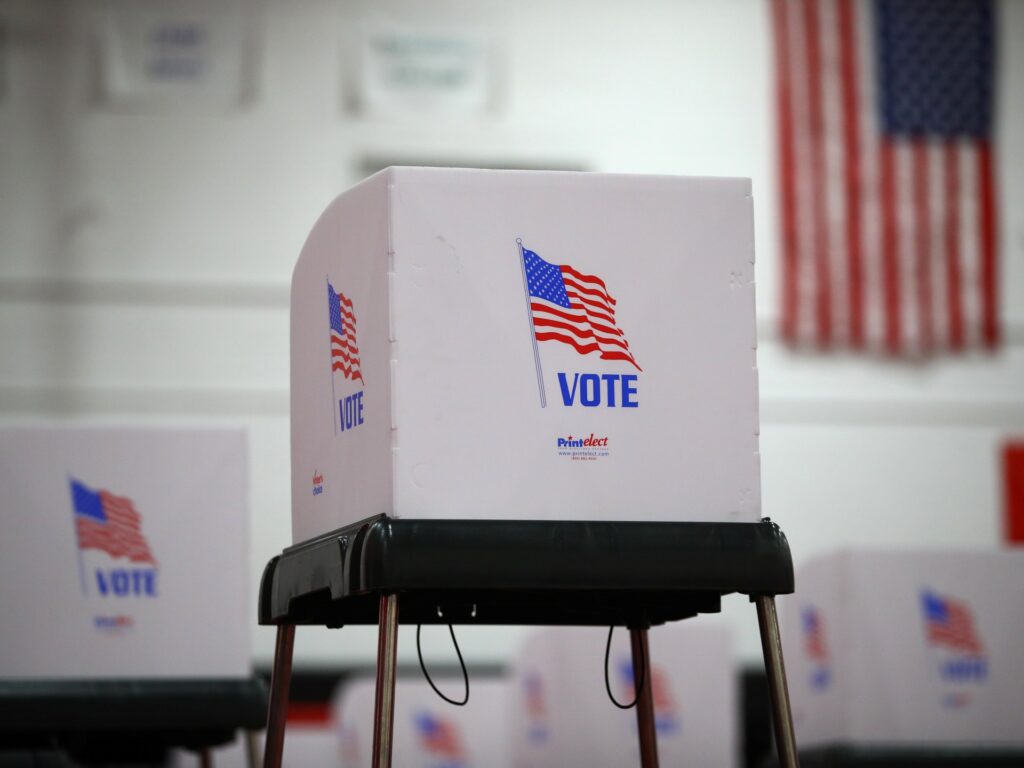
EXPLAINER Gerrymandering, the partisan redrawing of voting districts, is as old as the US and yet is still a controversial part of its elections. It’s been called vote-rigging, a power grab and just plain sneaky. But it’s legal, and both Republicans and Democrats do it. Gerrymandering, the process of redrawing voting districts to favour political parties, is almost as old as the United States and yet still very much part of the modern political process. In this year’s general election, it could affect the outcome of crucial races for the US House of Representatives as well as state legislatures. How does gerrymandering work? Generally, once a decade, states update their voting districts to reflect population changes. That’s where gerrymandering creeps into the process. Political parties try to redraw the electoral maps to give their side the greatest number of seats in state legislatures and Congress. The district boundaries are manipulated to put like-minded voters together or to split them apart, either amplifying or diluting their voting power. The results are often contorted districts with meandering boundaries drawn to include some voters and leave others out. Essentially, gerrymandering allows politicians to choose their voters instead of the other way around. The word was invented in 1812 when the governor of Massachusetts, Elbridge Gerry, redrew the electoral map for the state Senate to benefit his party. The result was an oddly shaped district that looked like a salamander. It inspired cartoonist Elkanah Tisdale to draw a mythical creature for the Boston Gazette, calling it the “Gerry-mander”. The name stuck. Forging complacent politicians? Gerrymandering is controversial — and not just because it’s a blatant grab for votes. Critics claim it can dilute the voting power of racial minorities and undermine democracy. A 2023 study by Harvard University researchers found that gerrymandering often creates “safe” seats for politicians, meaning their races are less competitive. In turn, those politicians become less responsive to the needs of their constituents, who become discouraged about voting as a result. At least eight states have clear language in their constitutions against the partisan redrawing of voting districts. Others use independent commissions to make the changes. But the majority of states lack safeguards. National efforts in the last Congress also failed to ban partisan gerrymandering. In 2019, the US Supreme Court ruled it’s up to state courts to deal with legal battles over voting maps. So now, it’s a state-by-state fight over the role of partisan politics in voting districts — with some recent rulings potentially affecting the outcome of the 2024 election. For example, in South Carolina, a new voting map has turned a swing district into a safer Republican one, causing outrage among voting rights advocates. In Louisiana and Alabama, meanwhile, newly drawn maps could mean at least one more House seat in each state for Democrats. And in North Carolina, the state supreme court ruled in favour of a gerrymandered congressional map, possibly giving Republicans three more House seats. Each of those races is significant: Control over the US House of Representatives is decided by district-level votes, with the fate of national legislation hanging in the balance. Adblock test (Why?)
Muslims join Buddhist, Christian fighters to topple Myanmar’s military
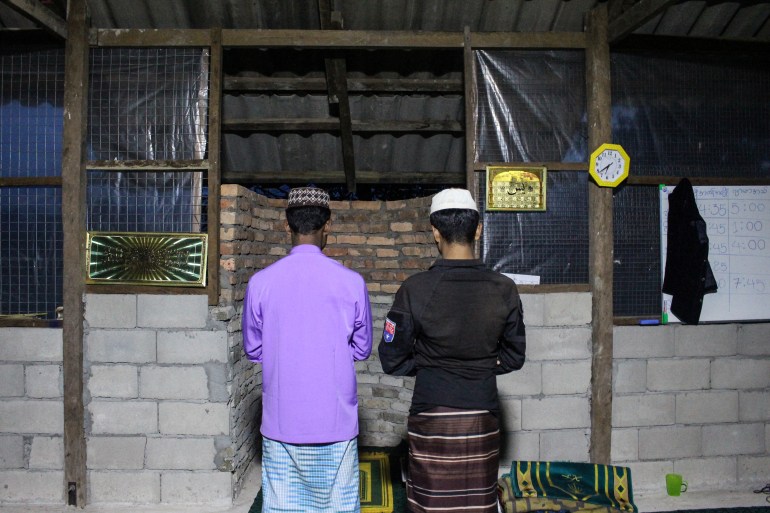
Myanmar – Scattered across the lush, rolling hills of southern Myanmar’s Tanintharyi region, rebel fighters stationed at checkpoints inspect cars and trucks traveling towards a nearby town still under the control of the Myanmar military – their adversary. While this is a familiar sight in the region, where the struggle against the military waged by disparate armed groups has intensified since the 2021 coup, what sets these rebels apart is their faith. These are members of the little-known “Muslim Company”, who have joined the struggle for democracy in Myanmar as part of a Christian- and Buddhist-dominated armed group – the Karen National Union (KNU). Officially named 3rd Company of Brigade 4 in the KNU, the 130 soldiers of the Muslim Company are just a fraction of the tens of thousands fighting to overthrow the country’s military rulers. With their story largely untold, Al Jazeera visited the company’s headquarters, nestled between the ridges of jungle-clad mountains at an undisclosed location in Myanmar’s south, to piece together an almost forgotten thread in the intricate tapestry of Myanmar’s conflict. “Some areas are focused on ethnicities having their own states,” Muslim Company leader Mohammed Eisher, 47, explained, referring to the armed resistance movements who have long fought against Myanmar’s military. In Tanintharyi, Eisher said, no one group dominates the land and, besides, the military’s repression affects all groups. “As long as the military remains in place, Muslims, and everybody else, will be oppressed,” he said. Fighters in 3rd Company pray at the mosque in their main camp in southern Myanmar [Lorcan Lovett/Al Jazeera] While Eisher said he hopes the acceptance of diversity within the anti-military forces would help ease cultural and regional tensions that have previously led to conflict in Myanmar, scholars say the embrace of the Muslim Company underlines the inclusive nature of the historic uprising taking place, and the incorporation of previously marginalised groups into the struggle. Diverse lines of descent Myanmar’s Muslims trace diverse lines of descent. They include the Rohingya in the west of the country, Muslims with Indian and Chinese heritage, and the Kamein, whose ancestors are believed to have been archers of a Mughal prince seeking refuge in the Arakan kingdom in the 17th century, and which is now part of Myanmar. In Tanintharyi, where the Muslim Company is based, some Muslims are descended from Arab, Persian and Indian traders, while others are Burmese Malays, known as Pashu. The region’s ethnic diversity also includes Karen and Mon, as well as Bamar sub-ethnicities from the cities of Dawei and Myeik, among others. While their uniforms bear the KNU insignia, the Muslim soldiers of 3rd Company carry a star and crescent moon badge in their bags, symbolizing their lineage from the All Burma Muslim Liberation Army (ABMLA) – the country was called “Burma” before it was re-named “Myanmar”. Soldiers in 3rd Company, known as ‘Muslim Company’, rest while recovering from illness at their barracks in Myanmar’s Tanintharyi region [Lorcan Lovett/Al Jazeera] In their main camp, hijab head coverings and thobes – long-sleeved ankle-length traditional robes often worn by men and women in Muslim countries – are common attire. Recitals of Quranic verses ring out from a mosque, while prayer mats are laid out at remote rebel outposts. Throughout the holy month of Ramadan, the company’s fighters observe fasting and attend daily prayers. Successive military-led governments in Myanmar, together with hardline nationalist monks, have portrayed Muslims as a grave threat to Burmese Buddhist culture. That has resulted in Muslim communities, with roots spanning more than a millennium in Myanmar, facing scapegoating, religious suppression and denial of citizenship. “It’s dangerous to generalize, but Muslims in Myanmar are highly vulnerable and have been exposed to significant violence,” Myanmar scholar Ashley South said. “In Karen areas, however, one often finds communities living peacefully – and it is significant that Muslim refugees moved tentatively to KNU-controlled areas, sometimes in preference to other groups,” South said. He added that the inclusion of groups previously alienated by Myanmar’s fractious politics is a defining trait of the current revolution, which has made strong gains against the military since it grabbed power in 2021. History of Muslim resistance The Muslims who resisted the military following its overthrow of Myanmar’s elected government three years ago and then found their way to 3rd Company, are not the first to rise against repression. Among those fleeing the anti-Muslim riots of August 1983 in what was then Moulmein – now called Mawlamyine – in lower Burma, a small group of refugees formed the Kawthoolei Muslim Liberation Front (KMLF) in KNU-held territory. The KNU trained about 200 KMLF fighters, but disputes between Sunni and Shia leaders eventually fragmented the group. In 1985, some KMLF fighters moved south to Tanintharyi, founding the ABMLA. After decades of sporadic clashes with the military, they officially became 3rd Company, known colloquially as the “Muslim Company”. That was about 2015, after the KNU’s ceasefire with the military ended, according to an administrator who has been with the group since 1987. With military atrocities having devastated families across Myanmar since the recent takeover, Myanmar’s army is now anathema not only to Muslims and ethnic minorities but to most of the population, the administrator said. “The [2021] coup opened a path to freedom for everybody,” he added, speaking to Al Jazeera as he sat on a hammock above a pair of military boots taken from a captured government base. About 20 women serve in 3rd Company, including 28-year-old Thandar*, a medic who joined in October 2021. After completing combat training under the KNU, Thandar told how she heard about the Muslim force and decided to sign up. Thandar has served in 3rd Company since October 2021 [Lorcan Lovett/Al Jazeera] “I’ll work here until the revolution is over,” she said, smiling at their commander, Eisher. “He’s like my new father now,” she said. Among other things, belonging to a like-minded company of fighters “made it easier to have a halal diet”, she said. “Plus, I’m with fellow Muslims,” she added. “It’s
